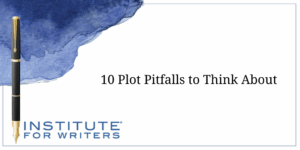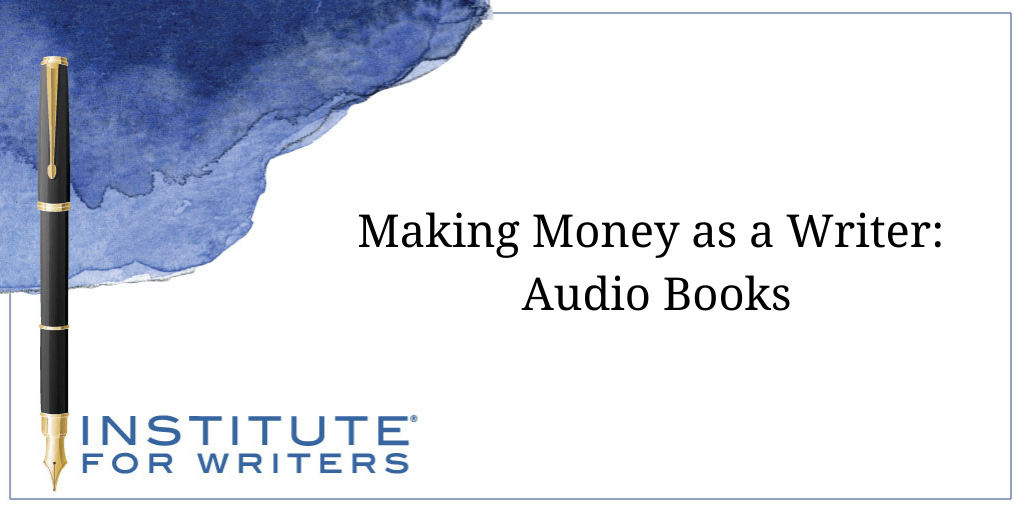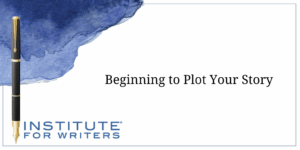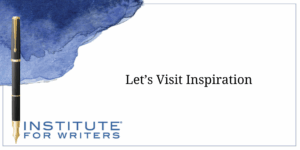
10 Plot Pitfalls to Think About
Plot can be tricky, and, as a writer, you need to be aware of what makes or breaks plot. Take a look at 10 different things to avoid in your own writing.

We teach our students how to write and get published!
View our Course Catalog >
Audio books can be a steady, supplemental income stream for authors. More and more people listen to books at home while working, during a commute, or in bed at night before going to sleep. The audio book market is growing as readers, turned listeners, are looking for more content to enjoy. If you’ve already written a book and have the audio rights for it, it’s leaving money on the table not to offer your book on as many formats and channels that you can. Having an audio book done is easier than you think. There are three ways to go about it.
This is the least expensive route, however, it is also requires the most tech savvy and equipment. In order for your audio book to be approved, you need to have a soundproof room or studio so there aren’t any background noises accidentally recorded in your performance. You have to have a quality microphone and editing software to make sure that your reading is flawless. If it’s not, it’s a good chance that it won’t pass the quality control of the audio book resellers like Audible and Findaway Voices—two of the major distributors of audio books. (There are many other distributors. These are the only two I’ve had experience with.) You will need to be comfortable editing the digital files and uploading them. But most of all, you have to have the voice that will entertain and entice listeners. I’d recommend taking a course on audio production or voice acting to brush up on your skills, if you decide to go this route.
This is the most expensive route, but it has the guarantee of the most professional output with the least amount of work on your part. You just upload a sample chapter. Listen to the auditions. Hire the audio book narrator, who will also act as the producer. Then you approve the narration and it gets uploaded by either the distributor or the narrator. Audio book narrators genuinely charge per finished hour. Depending on your word count and the quality of your narrator, the cost could run in the thousands. As an example, my 60,000-word romantic suspense novel, Tough Guy, cost around $5,000.00 to produce. You should do research on narrators before hiring them. Listen to audio books to see if you can find a narrator that you like. ACX allows you to hear samples of audio narrators and see what they charge per finished hour. Findaway Voices will also suggest narrators that would be a good fit for your project.
While this requires no money down, it also cuts into your profits. A well-selling audio book can easily result in paying the narrator more than what a standard audio book narration costs. However, that’s because there’s more risk for the narrator. They’re not getting paid until the royalty checks come in, and it may take them a long time to earn what they would have received if the client paid up front. Because of this risk, a lot of the top tier narrators won’t do this type of deal. But a lot of talented new narrators who are eager to get their names and voices out there will often agree to the 50/50 royalty split. A word of caution: in my experience, I’ve had narrators drop or delay my 50/50 project to take on a standard contract. While this has left me in a lurch, there was nothing I could do about it as no money had changed hands. If you were to go this route, do not be on a tight deadline. For example, if you wanted to release your e-book, paperback, and audio book on the same day, you’re better off paying the voice actor up front. You’ll have a greater chance of making your release date.
Selling an audio book of your finished novel is a no-brainer. The hard work—writing the book—is already done. The second income stream that the audio book provides supplements your income and it’s a nice surprise every month to see the extra money in your bank account.

Plot can be tricky, and, as a writer, you need to be aware of what makes or breaks plot. Take a look at 10 different things to avoid in your own writing.

Plot is more than just the chain of events within a story. There are so many elements to plot to consider when writing. Let’s dive into those elements.

Visiting new places is key to exploring new ideas and finding inspiration. Let’s see the places you can go this summer to spark your next story.
1000 N. West Street #1200, Wilmington, DE 19801
© 2024 Direct Learning Systems, Inc. All rights reserved.
1000 N. West Street #1200, Wilmington, DE 19801
© 2024 Direct Learning Systems, Inc. All rights reserved.
1000 N. West Street #1200, Wilmington, DE 19801
© 2024 Direct Learning Systems, Inc. All rights reserved.
1000 N. West Street #1200, Wilmington, DE 19801
© 2025 Direct Learning Systems, Inc. All rights reserved.
1000 N. West Street #1200, Wilmington, DE 19801
©2025 Direct Learning Systems, Inc. All rights reserved. Privacy Policy.
1 Comment